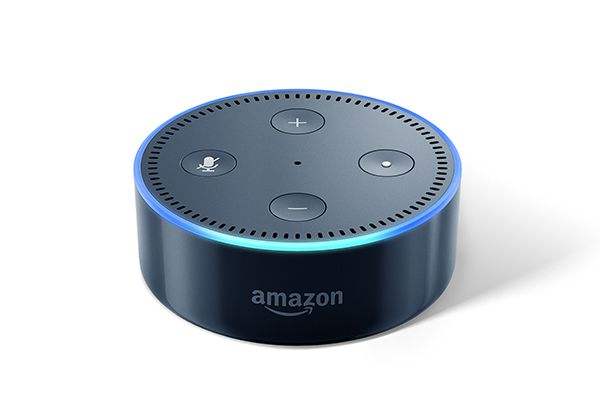Amazon launched Alexa five years ago. In the next few years, it dominated the field of smart speakers, and despite increasing competition, it continues to dominate the list. According to Statista data, at the end of the third quarter of 2016, Alexa occupied 93.5% of the smart speaker market.

In the past few years, the smart speaker market has attracted several other companies. The increase in the number of players means that Alexa's competition has become fiercer. Technology giants such as GOOGL and Apple have launched their own smart speakers. GOOGL launched Google Home, and Apple is also trying to gain traction in this space with HomePod.
Chinese heavyweight companies Alibaba, BIDU, Xiaomi and JD are also participants in the field of smart speakers. Several market research reports show that despite the fierce competition, Alexa managed to keep his top spot.
Alexa's market share is 21.9%
Statista's estimates indicate that Alexa's share of smart home speakers has fallen from 88% at the end of the fourth quarter of 2016 to 51.8% in 2017 and to 35.5% in 2018. As of the end of the second quarter of 2019, Alexa's market share was 21.9%.
As of the end of the fourth quarter of 2016, Google Home's market share was 8.7%. At the end of 2017, this proportion rose to 35.7%, and fell to 30% at the end of the fourth quarter of 2018. Google Home had a market share of 18.5% at the end of the second quarter of 2019.
In contrast, Apple's HomePod's market share dropped from 5.7% in the first quarter of 2018 to 4.1% in the fourth quarter of 2018. As of the second quarter of 2019, the company's market share was 4.7%. HomePod has struggled for a long time.
Canalys' expectations for Alexa
On the other hand, Canalys expects Alexa's market share in the second quarter of 2019 to be 25.4%. It estimates that Google Home has a market share of 16.7%, and he doesn't think HomePod will be among the top five in the smart speaker field.
AlexAlthough Alexa continues to dominate this market, it is losing market share. According to the Canalys report, shipments of the entire smart speaker market in the second quarter of 2019 increased by 55.4% year-on-year to 26.1 million units.
Alexa shipments are expected to increase by 61.1% to 6.6 million units. In contrast, Google Home shipments fell 19.8% to 4.3 million units. The shipment growth rate of Alibaba and Xiaomi is also lower than the overall market growth rate. Alibaba's shipments increased by 38.8% to 4.1 million units, while Xiaomi's shipments increased by 37.5% to 2.8 million units.
BIDU is by far the most impressive competitor. The company increased shipments by 3.700% in the second quarter of 2019 to 4.5 million units.
China is the largest market for smart speakers
According to Canalys data, China's smart speaker market sales were 12.6 million units, accounting for 48% of total sales. BIDU quickly consolidated its leadership position, replacing Google's Alexa as the second largest smart speaker player.
BIDU, Xiaomi and Alibaba will continue to enjoy significant shipment growth in the coming quarters. China's growing purchasing power will continue to generate strong demand.
In the past three years, China's smart speaker market has grown at an annual rate of 98.7%. According to the SAR research report, shipments are expected to reach 15 million units in 2019, compared to only 1.9 million units in 2016.
This Canalys report states: "In China, lightning-fast development is mainly driven by suppliers injecting large amounts of capital to quickly gain market dominance. This strategy is provided by Internet services such as BIDU, Alibaba and Tencent Businesses are accustomed to spending billions of dollars on traffic acquisitions and know how to quickly reach critical installation bases. "
PoHomePod, Google Home and Alexa must now target future international speaker sales. Sales of smart speakers in the United States fell 2.7% to 6.1 million units in the second quarter. No company has officially reported shipments of its smart speakers. These estimates may differ significantly from actual figures.
Smart speaker devices account for only a small portion of the overall sales of Amazon, Google and Apple. But these tech giants continue to invest millions of dollars in product development and marketing, focusing on expanding target markets.
Will Alexa continue to dominate the smart speaker market by the end of 2019, or will it be overtaken by BIDU?